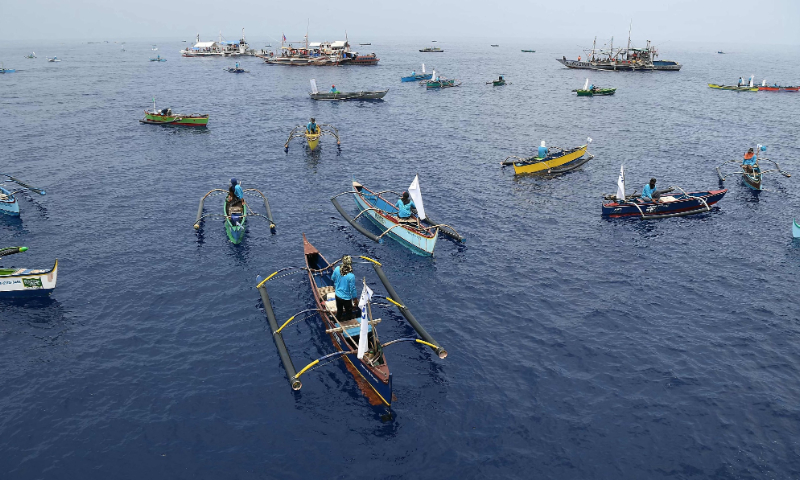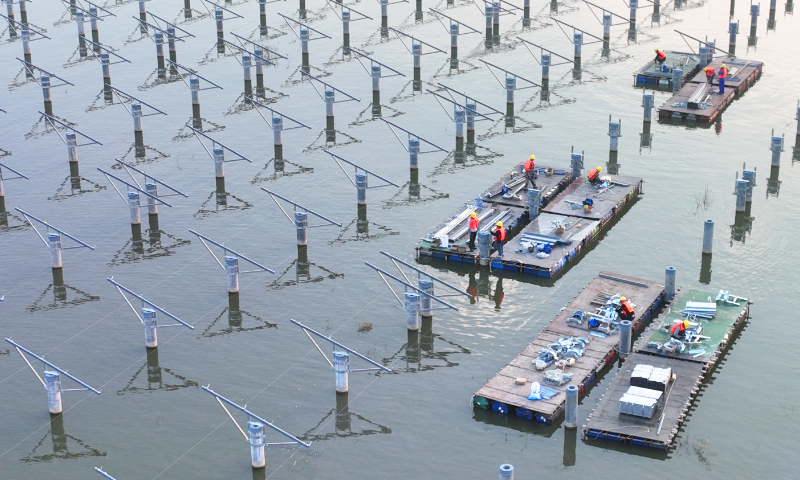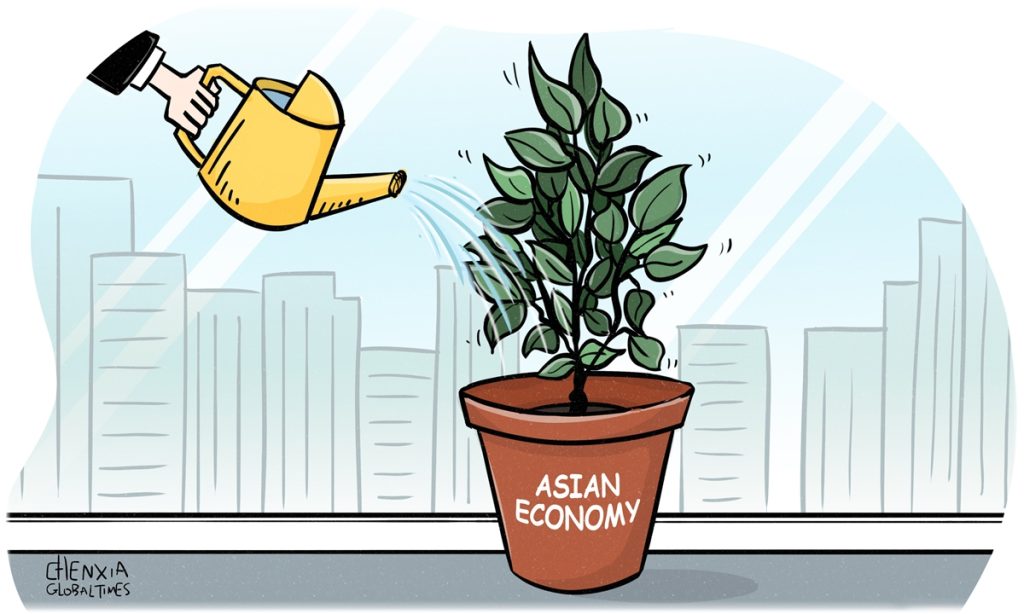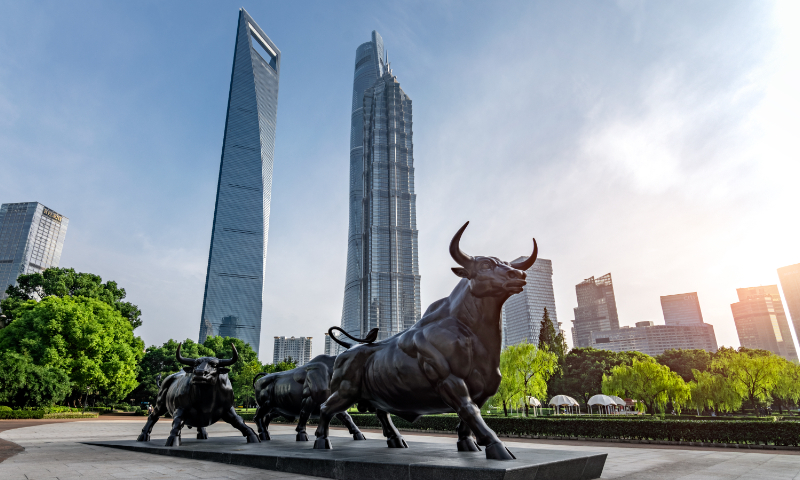Witness to history: Chinese in Russia recall narrowly escaping from Moscow concert massacre; community offers timely help and solace

Editor's Note:
A violent incident at a concert venue on the outskirts of Moscow resulted in the death of at least 137 individuals and left over 100 injured. The assailants used automatic firearms during the incident and utilized an inflammable substance to start a blaze.
Analysts have noted that this is one of the most severe terrorist attacks Russia has faced in over a decade.
Russian President Vladimir Putin announced the capture of all four assailants responsible for the onslaught, stating that everyone involved in the act, from those who carried it out to those who organized and funded it, will face consequences.
More than 30 hours after the tragic event, those who experienced the ordeal are still deeply shaken. Several Chinese residents in Russia have shared their close encounters and emotions regarding the terror attack with the Global Times.
This story is part of the Global Times' series "Witness to history," which features first-hand accounts from witnesses who were at the forefront of historic moments. From scholars, politicians, and diplomats to ordinary citizens, their authentic reflections on the impact of historic moments help reveal a sound future for humanity through the solid steps forward taken in the past and the present.
Moscow's streets on Friday night were bustling with traffic and crowded with people preparing for the upcoming weekend.
For Chinese student Chen Yiming, this was supposed to be a good opportunity to unwind in the Russian capital.
Chen is a student at Saint Petersburg State University. On that Friday, he returned from a short trip to Armenia and arrived in Moscow, ready to transfer back to Saint Petersburg.
He visited Crocus City Hall, a spectacular complex stretching 1.2 kilometers with four floors housing restaurants, entertainment, and shopping, bustling with activity in Krasnogorsk, in the northwest of Moscow. Chen intended to enjoy a meal at a restaurant on the fourth floor, unaware that the wheels of fate were already turning.
As he browsed the menu, pondering his meal choice, a deafening explosion shattered the peace, too loud to ignore, unsettling everyone around.
Chen sensed it might be a drone attack. With Ukraine's repeated drone strikes on Moscow, this thought was not unfounded.
However, the continuous sound of gunfire soon made him realize it was not a drone but actual shooting. Panic spread, and the crowd in the mall began to scatter in chaos, with no one knowing what exactly was happening or where to flee.
Following the crowd, Chen rushed outside, filled with fear and uncertainty, witnessing people falling, screaming, and some lying on the ground. He followed the crowd toward a nearby bridge, thinking it might be safer.
"The gunfire lasted about 10 minutes," he recalled.
About ten minutes later, through social media, Chen knew the truth - the mall's concert hall had been attacked.
After the initial shock, the gravity of the situation finally donned on him, as such terror attacks are extremely rare in Russia, only seen in movies.
Police quickly arrived at the scene, about 10 to 20 minutes after the incident. The sound of helicopters added to the tense atmosphere.
Chen took the opportunity to leave, fortunately catching a free taxi ride.
Chen was not the only Chinese person close to the attack.
A Chinese person surnamed He from North China's Hebei Province, was also right in the concert hall and witnessed the attack.
He, a pianist who won international competitions for China, had been invited to perform at the concert. He was sitting at the back, listening to the performance, when armed attackers disrupted the venue, causing chaos.
He immediately hid under his seat, trying to stay silent amid the turmoil and screams. He saw the attackers' entry through the gaps in the seats, hearing live gunfire for the first time in his life, according to a report published by Chongqing News.
After a period of chaos and tension, police took control, and he was then safely escorted back to his school.
Tragically, his Russian friend, a girl, was not so fortunate. It is reported that the girl left the concert hall to go to the restroom midway through the event, where she unfortunately encountered the armed assailant and tragically lost her life.
Other survivors also recounted their escape experiences through various means.
One survivor said that the security staff directed people into a boiler room where water tanks or fire hose boxes were stored, with about 50 people hiding there, The Beijing News reported.
The survivor said that they used water from the fire hydrants to wet their clothes to cover their faces, sat on the floor to remain as low as possible. He recalled that subsequently, rescuers broke into the boiler room, the survivors inside responded, and they all fled together.
Another survivor mentioned that she was injured and fell to the ground, managing to survive by playing dead. She waited until the terrorists left before crawling out of the concert hall.
Russian President Vladimir Putin said Saturday all four gunmen in the Moscow terrorist attack were arrested. Putin, addressing the nation, said that all those responsible for the deadly attack would be punished. He also ordered that March 24 be a nationwide day of mourning.
Bonding of community
In the southwest part of Moscow, Xu Wenteng was live-streaming on TikTok as usual, sharing daily activities as a Chinese Volunteer Union in Russia.
However, that night turned out to be so different.
During the live stream, Xu, the president of the association, received a message about a terrorist attack in western Moscow. The sudden news disrupted the live stream's flow and Xu's peace of mind.
His live stream quickly turned from routine to a hub of urgent news update. With the help of the Chinese community in Moscow and Russian friends, he began to report the latest developments of the incident to his audience.
That night, his live stream became an information center, with the Chinese residents in Russia and netizens sharing information, helping each other understand the situation.
Despite the attack happening far from his residence in the southwest district, he immediately worried about his niece and family, and fortunately was relieved to learn of their safety.
The familiarity of the attack location deeply affected Xu. "It was a gathering of young people," he told the Global Times.
Nevertheless, during the live stream, he used his two-decade experience in Moscow to advise calmness, especially when the situation was unclear, recalling past incidents and emphasizing staying informed through official news sources.
Even though the intense discussion temporarily choked his live stream, Xu continued to communicate with the Chinese community in Russia through various channels, sharing real-time information and offering assistance.
After the attack, he saw increased security in Moscow, with more police at important sites like Red Square, but he remained vigilant, believing that the act was organized and deliberate.
Xu knew that such events could shock recent Chinese arrivals and those new to Moscow. He specially conveyed reassurance to anxious parents in China, urging them to avoid spreading panic and unfounded rumors, and to not spread anxiety to their children in Russia.
China strongly condemns terrorist attacks, and firmly supports Russia in safeguarding its national security and stability, a Chinese Foreign Ministry spokesperson said on Saturday.
The spokesperson said China opposes all forms of terrorism, strongly condemns terrorist attacks, and firmly supports Russia in safeguarding its national security and stability.
Preciousness of national stability
Chen spent the following Saturday indoors in central Moscow, only going out to eat. He is still feeling tense but not seeking embassy assistance, considering his situation manageable.
For safety, his university in Saint Petersburg decided to suspend classes for the next week.
The attack also caused flight prices to spike. The prices of direct flights from Moscow back to China surged over the weekend. The direct flight tickets from Moscow to Beijing on March 24 were all priced at more than 10,000 yuan ($1,383), with only a small number of tickets available. Air China's Moscow-Beijing flight had only first-class tickets priced at over 50,000 yuan left, media said.
However, Chen had no immediate plans to return home. Despite the foreign environment and the sudden panic and chaos, he felt a growing inner calmness, choosing to stay in Russia to continue his studies and life.
Survivor He who escaped the concert hall has also resumed his studies at school, taking Russian language courses online. He, too, expressed his intention to stay in Russia to continue his education and to prepare for his dream of participating in the Chopin Piano Competition.
Moscow's streets, once lively, were shrouded in a thin layer of gloom. Following the attack, the city center, including the Red Square, was closed on Saturday, but tour groups still visited nearby, and some tourists took photos from behind the fences.
In a video clip Xu sent to the Global Times, a group of middle-aged and elderly tourists shouted together in front of the Saint Basil's Cathedral on Red Square, "Today is March 23rd, Moscow is very safe."
While going out, Chen noticed a significant reduction in traffic and pedestrians compared to the previous day's hustle and bustle, with increased police patrols. Some public places were closed, while some others are still open.
He remembered the scenes of helplessness, fear, and desperate attempts to escape during the attack, haunting his thoughts. However, as time passed, his fear was gradually replaced by rationality.
On Sina Weibo, he wrote, "The explosion last night is still fresh on my mind, reminding me of life's unpredictability and the preciousness of national stability and unity. I hope everyone stays healthy and safe."
Many netizens also expressed their concerns for his safety and wished him an early return home.
On Sunday morning, in a WeChat group of the Russian Chinese community, an elderly Chinese resident in Moscow posted a warning about the possible still-at-large terrorists, advising caution and reduced outings.
This message brought some reassurance to the community, knowing they were not alone and unsupported.








